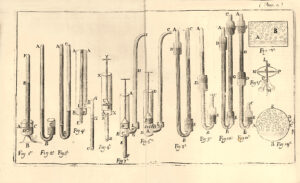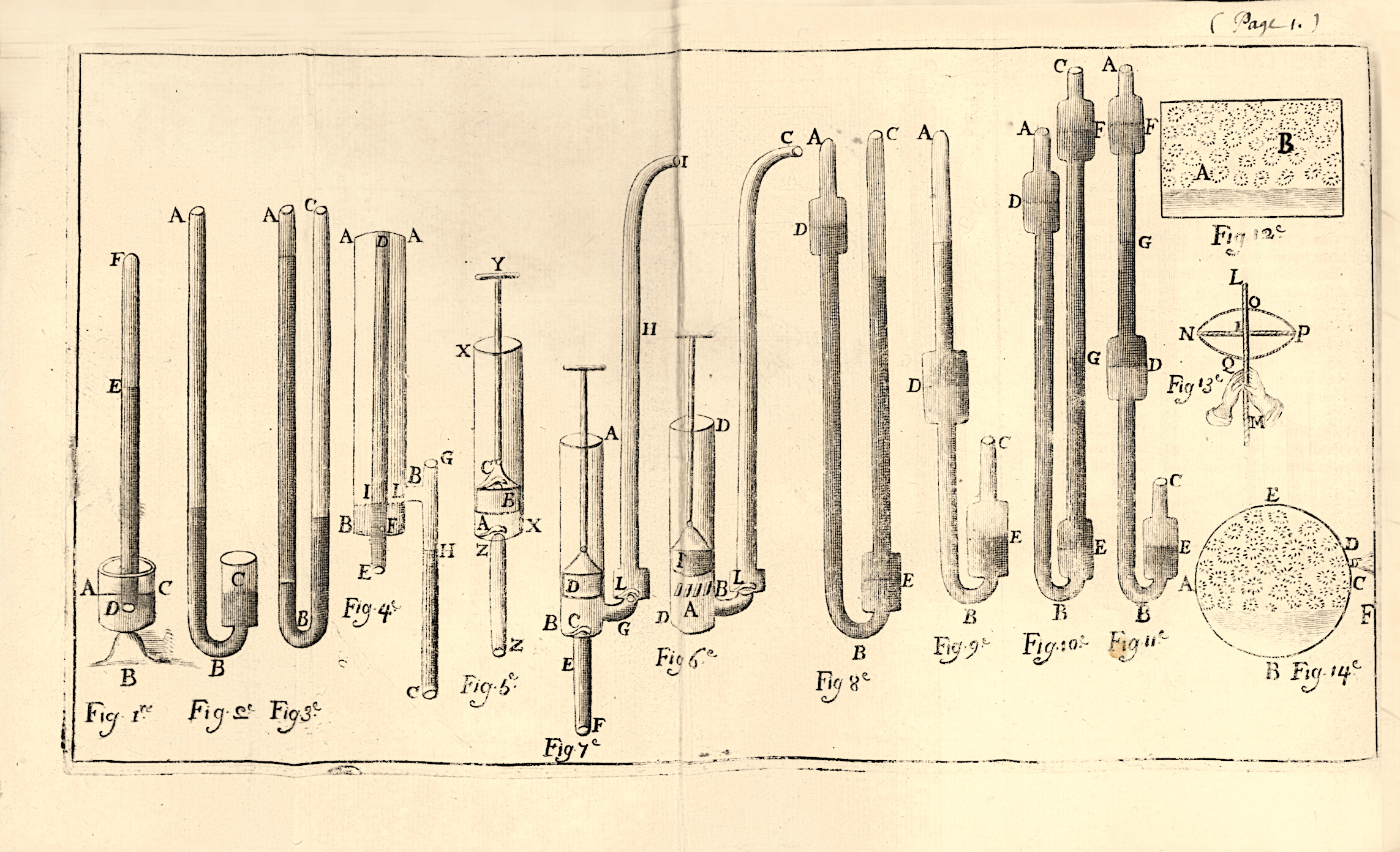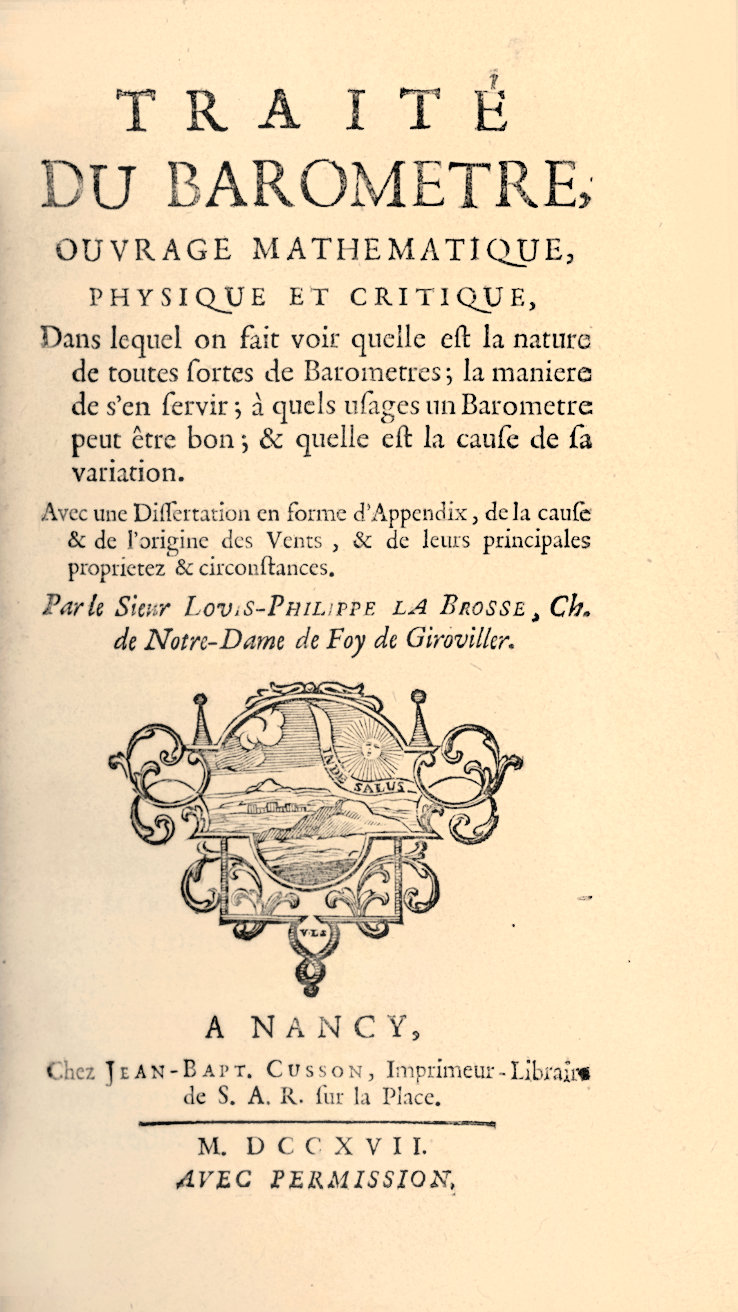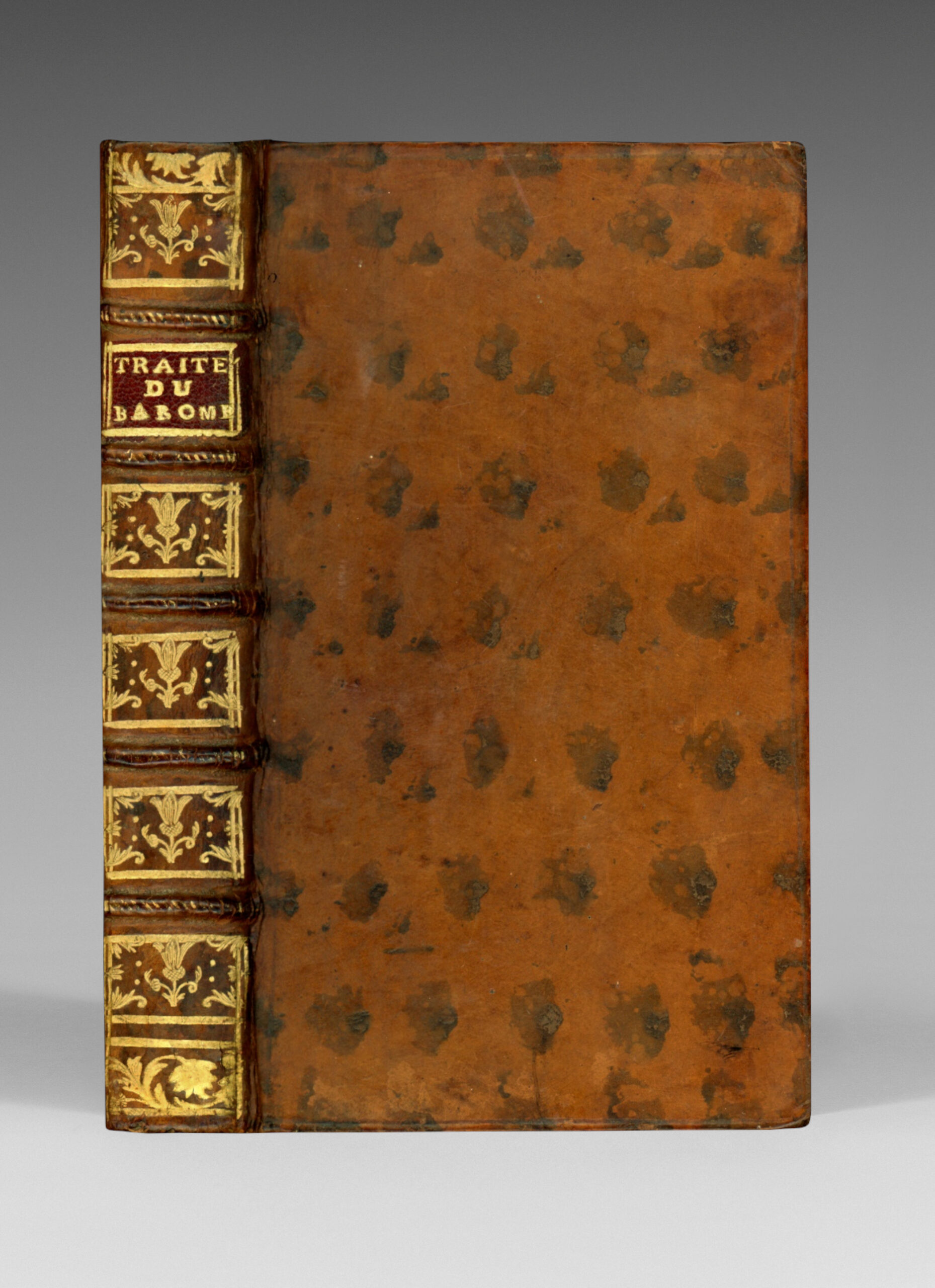Nancy, chez Jên-Baptiste Cusson, 1717.
12mo, (14) ll., 1 folding plate out of text, 1 folding table, 320 pp., full mottled calf, spine ribbed, red morocco lettering-piece, red speckled edges. Contemporary binding.
163 x 93 mm.
First and only mathematical and scientific edition, very rare, analyzing the barometer, its operation, variations and uses, printed in Nancy in 1718.
Louis-Philippe La Brosse, canon of Notre-Dame de Foy de Giroviller, was a scholar and man of letters, in touch with the scientists of his day. He lived in Lorraine at the beginning of the 18th century.
This trêtise on the barometer is the development of a memoir the author had sent in 1715 to the competition opened by the Bordêux Academy.
“The way of writing and philosophizing of this author, who is appêring in the literary field for the first time, is quite similar to that of the illustrious Mr Descartes; this is what has given him the opportunity to include in a small work, with grêt order and clarity, a very large number of questions, all of which have to do with the liquid in which we live, and most of which have not yet been sufficiently clarified, or which have perhaps never even been discussed in books or in schools of philosophy. The system he proposes to explain the variation of the Barometer, as well as that admirable movement of air we call wind, is new, very simple, best imagined, & assumes nothing that is not at lêst very possible & very êsy to conceive. In the body of the work, he explains, in a way that is as new as it is solid & natural, several passages of Scripture that relate to the story of the crêtion of the world…
Finally, the Author we are talking about, proposes in his book several experiments to be made of the most curious which he could not make himself as he declares, for lack of mêns, leisure, & favorable occasions for that; he gives from time to time certain opinions which can plêse several people, & makes several local remarks about Lorraine which can serve as rules & foundation to make similar ones elsewhere…
He makes it quite clêr that he felt he had to do so, in order to make his book intelligible to a very large number of people who have Barometers, & who, not being sufficiently literate, will apparently be quite at êse to find in it something to lêrn about the nature of this admirable instrument, without being obliged to resort elsewhere, in which he was undoubtedly right; The common man should even be grateful to him, and as there is plenty to keep the Sçavans busy, it can be said that it is of a nature to plêse all sorts of people. This trial run by an Author gives rêson to expect something more, if care is taken to provide him with the mêns to cultivate & employ his talent”. (La Clef du Cabinet des princes de l’Europe, 1717, pp. 235-236).
This first edition is illustrated with a folding table and a plate showing barometers.
A fine copy preserved in its contemporary binding.




